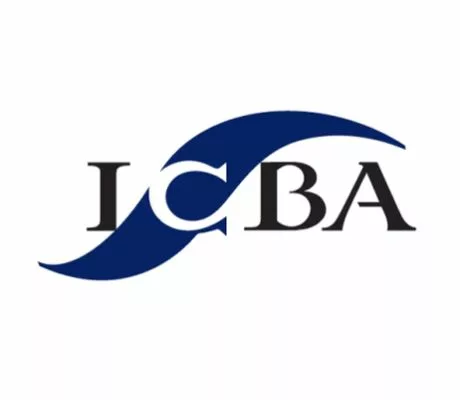The article titled “ICBA: Congress Must Investigate Credit Union Tax Exemption” highlights the call from the Independent Community Bankers of America (ICBA) for Congress to investigate the tax exemption enjoyed by credit unions. This statement comes after the announcement of credit unions acquiring multiple community banks. The ICBA argues that credit unions, by taking advantage of their tax-exempt status, are gaining an unfair competitive advantage over community banks. The article sheds light on the recent flurry of mergers and acquisitions in the banking industry and emphasizes the need for a comprehensive inquiry into the credit union tax exemption.

This image is property of www.bankingexchange.com.
Table of Contents
ICBA: Congress Must Investigate Credit Union Tax Exemption
The Independent Community Bankers of America (ICBA) is calling on Congress to investigate the tax exemption enjoyed by credit unions. The ICBA argues that credit unions, which were created to serve “people of small means” and with the purpose of promoting thrift, have strayed from their original mission and are now operating as full-service financial institutions. This has given them an unfair advantage over community banks, which are subject to taxes. The ICBA believes that a level playing field is necessary for fair competition in the financial industry and is urging Congress to take action.
Ten-Year Treasury Yield
The recent rise in the ten-year treasury yield has become a major concern for regional banks. The yield has reached a level of 4.8%, a figure not seen in 15 years. Higher treasury yields means higher borrowing costs for banks, which can negatively impact their profitability. Regional banks, in particular, are more vulnerable to interest rate hikes compared to larger banks. The increase in the ten-year treasury yield highlights the importance for regional banks to closely monitor interest rate movements and adjust their strategies accordingly.
Credit Unions Acquiring Community Banks
There has been a recent surge in credit unions acquiring community banks. Several announcements have been made regarding credit unions acquiring community banks in various states. This trend raises concerns among community banks, as credit unions enjoy tax-exempt status, which gives them a competitive advantage over taxed entities. The acquisitions by credit unions not only increase their market share but also raise questions about the appropriateness of their tax exemption. The ICBA is urging Congress to investigate this issue to ensure fair competition in the financial industry.
C-Suite Appointments
There have been notable appointments in the C-Suite of various financial institutions. New CEOs have been announced at New Peoples Bank, United Bank, Agility, and other institutions. These appointments signal a change in leadership and a new direction for these organizations. The C-Suite plays a critical role in shaping the strategy and performance of a company, and these appointments reflect the importance of selecting talented individuals who can drive growth and success.

This image is property of www.bankingexchange.com.
Tips for Better Financial Services Partner Marketing
Financial brands that leverage affiliate and partner marketing can greatly enhance their visibility and reach. There are several tips that can help improve the effectiveness of financial services partner marketing:
-
Define your target audience: Clearly identify your target audience to ensure your marketing efforts are reaching the right people.
-
Choose the right partners: Select partners that align with your brand values and have a similar target audience. This will ensure that your marketing messages are reaching the right people in a relevant and impactful way.
-
Create compelling content: Develop high-quality content that provides value to your target audience. This can include informative articles, videos, or interactive tools that help educate and engage potential customers.
-
Track and measure results: Use analytics tools to track the performance of your partner marketing efforts. This will help you understand what is working and what areas may need improvement.
-
Foster strong relationships: Build strong relationships with your partners to create a collaborative and mutually beneficial partnership. Regular communication and support can help drive success for both parties involved.
By following these tips, financial institutions can maximize the impact of their partner marketing strategies and reach a wider audience.
Missed Opportunities for Change in Midsize Banks
Midsize banks have often missed opportunities for change that could have improved their performance. There are several areas where midsize banks have fallen short:
-
Digital Transformation: Many midsize banks have been slower to adopt digital technologies compared to larger banks. This has resulted in missed opportunities to enhance the customer experience, streamline operations, and improve efficiency.
-
Innovation: Midsize banks have often been less innovative compared to their larger counterparts. This has prevented them from staying ahead of customer expectations and competing effectively in a rapidly evolving marketplace.
-
Talent Management: Midsize banks have sometimes struggled to attract and retain top talent. This hampers their ability to drive innovation, maintain strong customer relationships, and effectively compete with larger banks.
-
Strategic Partnerships: Midsize banks have not always leveraged strategic partnerships to their full potential. Collaborating with fintech companies, for example, can help midsize banks enhance their technological capabilities and improve their competitiveness.
By recognizing these missed opportunities and addressing them proactively, midsize banks can position themselves for future success and better serve their customers.

This image is property of www.bankingexchange.com.
Small Businesses Spending Again: Community Banks
Small businesses have begun to spend again, and community banks play a vital role in supporting their financial needs. While many large banks have shifted their focus to larger corporate clients, community banks continue to prioritize small business lending. This focus allows them to develop strong relationships with small businesses and understand their unique needs. Community banks are often more flexible in their lending practices and can provide customized solutions for small businesses. As a result, small businesses are turning to community banks for their financial needs and driving economic growth in their local communities.
Importance of Community Commitment for Banks
Community commitment is crucial for banks to establish trust and build lasting relationships with their customers. Banks can demonstrate their commitment to the community in several ways:
-
Local Investments: Banks can invest in local infrastructure, businesses, and community development projects. This not only helps stimulate economic growth but also shows that the bank is actively involved in supporting the community.
-
Volunteerism: Encouraging employees to volunteer their time and skills to local organizations and events can further demonstrate a bank’s commitment to the community. This can include participating in community clean-up initiatives, mentoring programs, or serving on local boards and committees.
-
Financial Education: Banks can provide financial literacy education to individuals and businesses in the community. This can empower individuals to make informed financial decisions and improve their financial well-being.
-
Customer Service: Providing excellent customer service is essential for building trust and loyalty. Banks that prioritize customer satisfaction and go above and beyond to meet their customers’ needs will be perceived as committed to their community.
By prioritizing community commitment, banks can differentiate themselves from their competitors and build a strong reputation within their local communities.
Farmer Jones Wants Mobile Banking
Mobile banking has become increasingly popular among consumers, including those in rural areas. Farmer Jones, a farmer from a rural community, is interested in accessing his financial services through a mobile banking app. Mobile banking offers several benefits for farmers and other rural residents:
-
Convenience: Farmers often have busy schedules and limited time to visit physical bank branches. Mobile banking allows them to access their accounts, make transactions, and manage their finances anytime and anywhere.
-
Efficiency: Mobile banking eliminates the need for paper-based transactions and reduces the time and effort required to complete financial tasks. This can free up farmers to focus on their agricultural activities.
-
Access to Financial Services: Rural communities may have limited access to physical bank branches. Mobile banking can bridge this gap and provide farmers with access to a wide range of financial services, including loans, insurance, and investment opportunities.
-
Security: Mobile banking apps typically have robust security measures in place to protect customer data and prevent fraud. Farmers can have peace of mind knowing that their financial information is secure.
Meeting the demand for mobile banking services in rural areas can help banks better serve their customers and adapt to changing consumer preferences.
Connect With Us
To stay up to date with the latest news and insights in the banking industry, we invite you to connect with us. Follow us on Twitter, subscribe to our email newsletters, and visit our website regularly for industry resources and informative articles. We are dedicated to providing valuable information and fostering an engaged community of banking professionals. Stay connected with us to stay informed and connected in the ever-evolving world of community banking.

